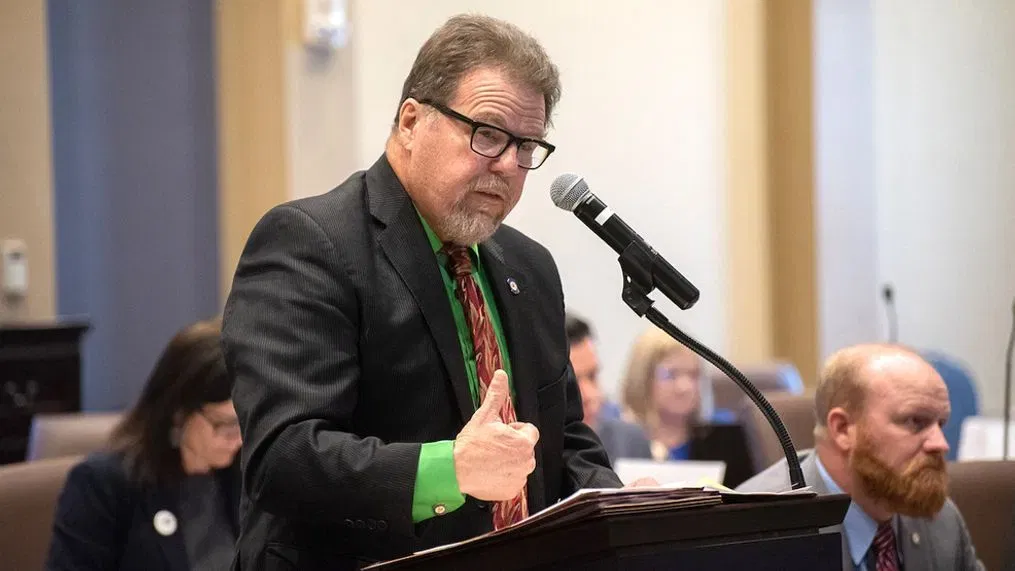Lawton, OK – Oklahoma State Representative Jay Steagall (R-Yukon) has introduced a new bill aimed at phasing out the state’s personal and corporate income taxes over the next decade. House Bill 1009, filed Tuesday, seeks to reduce both the personal income tax rate by 0.00475% annually and the corporate income tax rate by 0.004% annually, with the ultimate goal of eliminating the taxes entirely by 2035.
The proposal comes as part of Steagall’s ongoing efforts to dismantle the state’s income tax structure, which he argues is a violation of Oklahoma’s constitution. “Recent polls show that Oklahomans overwhelmingly support the elimination of the state income tax,” Steagall said in a statement. “This is a clear violation of our own state constitution, and I will continue to pursue righting this wrong in the upcoming session.”
This marks the third consecutive year Steagall has filed such legislation. Last month, State Senator Michael Bergstrom (R-Adair) introduced a similar proposal, Senate Bill 1, which also seeks to gradually reduce the state’s income tax. Under SB 1, the state’s marginal income tax rate would be lowered by 0.25 percentage points across all tax brackets initially, with future reductions tied to the state’s revenue growth.
Both Steagall’s and Bergstrom’s bills reflect a growing movement among Oklahoma Republicans to reduce taxes as a means of spurring economic growth. Advocates of income tax elimination argue that lower taxes would make the state more competitive and attractive to businesses and residents.
Critics, however, warn that eliminating the income tax could lead to significant budget shortfalls, potentially undermining funding for essential state services such as education and healthcare. Supporters of the plan counter that economic growth resulting from tax cuts would ultimately generate more revenue, offsetting any potential shortfall.
The proposed tax cuts come as the state grapples with revenue fluctuations and budgetary pressures, with some lawmakers questioning whether such large-scale reductions are fiscally responsible. However, Steagall remains optimistic, pointing to past economic performance and polling data to back his case.
“As I have stated before, Oklahomans want this change, and it’s time we acted on their behalf,” Steagall said.
As the 2025 legislative session approaches, both bills are expected to spark significant debate. If passed, these measures would mark a historic shift in Oklahoma’s tax policy, potentially shaping the state’s economic future for years to come.




